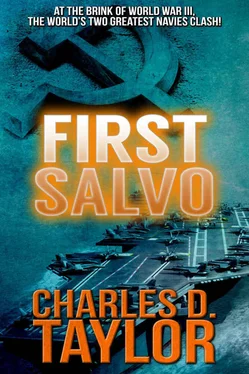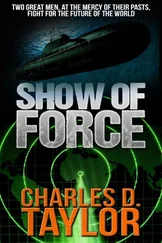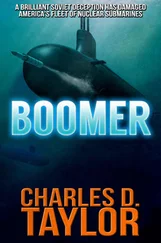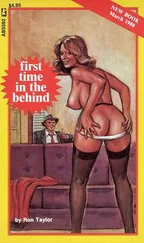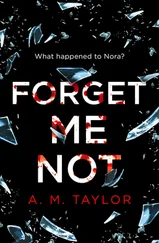Three times he filled his basket and worked his way in the slow shuffle of the peasants to the dumping station near the crusher. Each time, he selected a different route so that he could learn every path, every fence, every root and rock. Most important of all, by watching the comings and goings from the main house, he could determine just what each room might be used for and where each door led. Through habit, he laid out a simple floor plan in his head. The estimated depth of a given room might certainly be questionable, but he learned years ago that his guesses were usually within reason. He also identified the servants and what seemed to be their responsibilities. All this could help him later.
Once again, he noted that security was lax at best. Once the workers had filed in for the day, the gates were closed. Though they and the fences were watched continuously by men dressed in civilian rather than military clothes, Cobb sensed that they did not consider themselves under the same pressures that existed in Moscow. A number of military men, almost none in uniform, drifted in and out of the main building. Cobb could have picked them out as military anywhere. It soon became obvious to him that General Keradin’s staff was so highly organized, so professional, that a simple, relaxed system could exist, easily replacing the formalities of Moscow.
Cobb moved higher up on the hillside toward a row of vines that appeared more ready for harvesting. As he peered under the leaves, he could see that these grapes were almost perfect. Perhaps it was the soil, perhaps a deeper gulley between rows that held water for a longer period, perhaps even that these plants were a bit taller and caught the direct sun longer to produce a higher sugar content. These he would begin with in a moment.
He sat down on the edge of a cistern. Removing his cap, he mopped his forehead with a grimy rag he had found near the crusher. The cloth came away with a dark silt of sweat and dust. Neatly folding it, he wiped at either corner of his eyes to remove the clinging dirt.
A deep voice came to him at the same instant a shadow fell across his feet. “Well, it is a hot day, eh? Very good for the sugar. What do you think, eh?”
Cobb stiffened. For just a second, he had allowed his guard to slip. That was something he tended to avoid, even in everyday life. Perhaps the lack of sleep the night before was the reason. Whatever, there was no doubting that voice or that accent. He had listened to recordings of it over and over again. In person, General Keradin’s voice was sharper, perhaps just a bit more friendly, since he was in his own vineyards.
He looked up at the familiar face that he had studied so often in the past days. It was shadowed by the wide-brimmed hat, but he recognized the bright, inquiring eyes above the high cheekbones. There was just the quirk of a smile at the corners of his mouth. “The sugar is very high along this row,” Cobb responded, jumping to his feet, cap in hand in a gesture of humility.
“Oh?” Keradin raised a bushy eyebrow as he looked from the peasant to the clusters of grapes. He moved over by a vine, cradling a bunch in his hand, turning it one way and then the other. Selecting a few of the grapes, he held them to his eye, then popped a few into his mouth. His eyes opened wide in wonder. “You’re right.” He savored the sweet juice with his pursed lips. “I didn’t know we had anyone in the fields who knew the correct moment,” he added, turning back to Cobb. Keradin was a stocky man of medium height, rather nondescript in slacks and a short-sleeved shirt. But the confident eyes and authoritative voice was that of a military man.
“Yes, sir,” Cobb responded. He bent down, exposing a cluster of grapes still shaded by the vines in front. “The sun won’t hit these until afternoon, when some of the heat is already out of the rays. These,” he continued, straightening up and pointing to another cluster, “have been in the sun since early morning. When they are this close, a couple of hours of sun makes all the difference in the world with the sugar. Tomorrow, or perhaps the next day, these lower ones should be ready.”
“How long have you been working here?” the General demanded. “I don’t remember you the last time I came down here.”
“Only a few days, sir.” Cobb inclined his body slightly from the waist in a sign of respect. “Just for the picking, sir. My family comes from Georgia, outside Kutaisi, where they used to make such wines as you make here — deep, golden, sweet.” He paused, then added, “I work various vineyards as they need me, sir.”
“I see.” Keradin squinted in the bright sunshine. “Do you also know how to make the wines, how long the must should stay with the juice?”
“Yes, sir,” Cobb nodded. “My family made this wine for many generations — first in Georgia, then here in the Crimea after the war.”
“Ah! Perhaps you’re what I’m looking for. I have been experimenting the last few years — three, maybe four, whenever I can get the time — for a special aftertaste.” His eyes lit up. “Perhaps you understand what I mean: like the wines of Georgia?” He raised his eyebrows in question.
Cobb smiled ingratiatingly. “It is hard to be sure — without tasting, I mean. Everyone is looking for something a little different.” Could this be the chance he had hoped for?
“Yes, yes.” The General was nodding his head in agreement. “Maybe after you are finished here at the end of the day, you can come to the aging room with me. We could taste from the last few years. You will understand what I mean if we sample the different barrels. Do you think you could imitate something if we found the right one?”
“Yes, sir. It is possible.” Was it all falling into place so easily? Cobb wondered. No. The guards, maybe even the foreman — there had to be one from the GRU. One of them would know he didn’t belong. “But perhaps not, sir. It has been many years since I did that.”
“What is your name?” It was not a question, really. It was an order from a man who was used to a direct response.
“Victor, sir, Victor Berezin. But perhaps it has been too long.” It was a definite mistake, Cobb realized. Here, enclosed within Keradin’s compound, there was no way to escape. Just a few questions from those men who wandered casually with pistols on their hips, and they would once again become the hated GRU, as efficient at eliciting information as they were in the heart of the Kremlin. He would have no chance to complete his mission. If only this had been a straight assassination, something simple and straightforward. Right now, with the knife that lay beside his basket, he could do away with Keradin and drag the body between some rows. He would not escape, of course, but the mission would be complete. But that wasn’t what Pratt had ordered. Washington wanted this man alive if it was at all possible. “I think perhaps no, sir.”
“Nonsense, Berezin. I will talk with your foreman, Kozlov.” He turned on his heel. “I will send him for you about four,” he called over his shoulder as he moved briskly down the hill.
Cobb stared blankly after him. What a price to pay for not being on his toes. If he had seen Keradin coming up the hill, he would have been able to disappear to the other side. Now, while he had been able to bluff his way for the time being, he found himself in danger. He hoped against hope that the General would not head toward the crushing shed, where he knew the foreman was working. He watched, the tightness in his stomach letting up slightly as he saw Keradin turn to his left at the bottom of the hill and go into the dacha. Cobb had no idea what his next step would be, but he had to keep a sharp eye out for when the man came back out of the building.
Читать дальше
